Find Help
More Items From Ergsy search
-
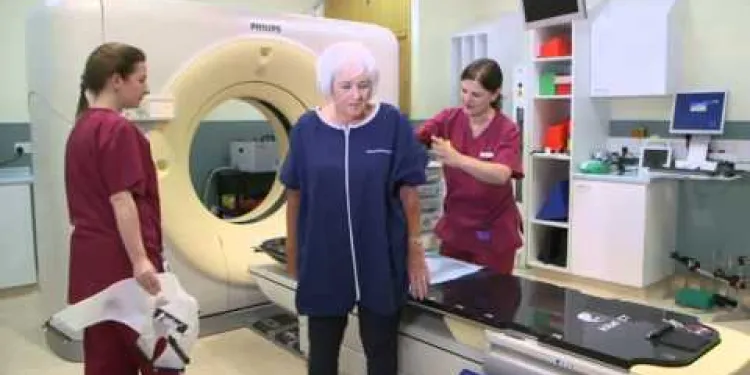
Radiotherapy to the Head and Neck: A Guide for patients and their carers
Relevance: 100%
-
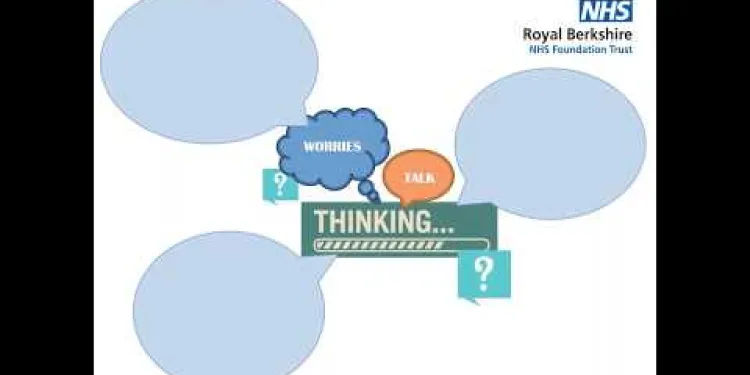
Royal Berkshire NHS Foundation Trust: Radiotherapy for head and neck cancers
Relevance: 68%
-
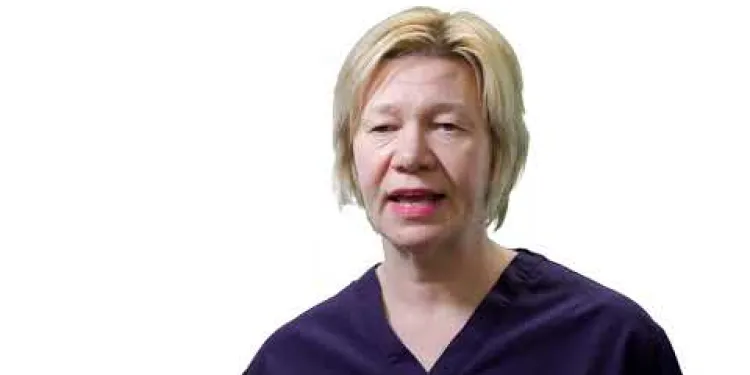
Head and Neck Cancer Diagnosis
Relevance: 54%
-

What support is available for carers of Alzheimer's patients?
Relevance: 38%
-

Are there financial support programs for carers of Alzheimer's patients?
Relevance: 38%
-

How important is self-care for carers of Alzheimer's patients?
Relevance: 38%
-
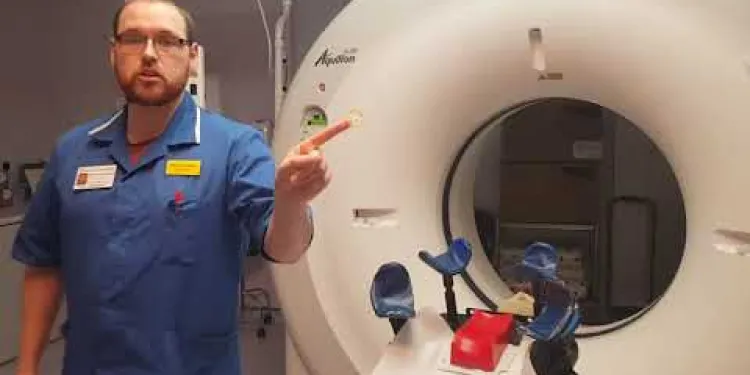
Radiotherapy CT scanner
Relevance: 37%
-

What government assistance is available for carers of Alzheimer's patients?
Relevance: 37%
-

What legal resources are available for carers of Alzheimer's patients?
Relevance: 36%
-

What types of support are available for carers of Alzheimer's patients?
Relevance: 36%
-

What emotional support is available for carers of Alzheimer's patients?
Relevance: 36%
-
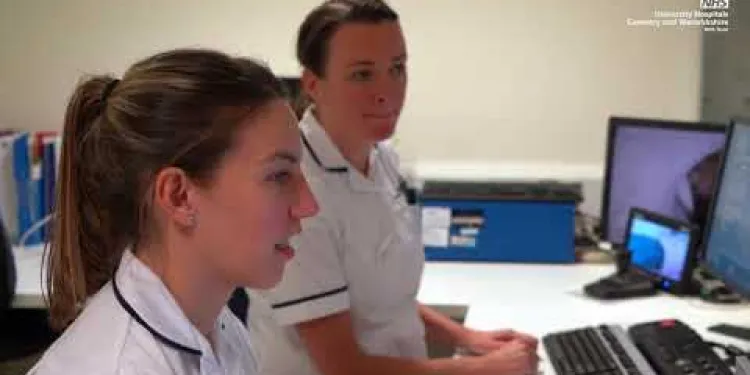
Radiotherapy Services at University Hospital
Relevance: 35%
-

Are there specific apps or tools to help carers of Alzheimer's patients?
Relevance: 35%
-
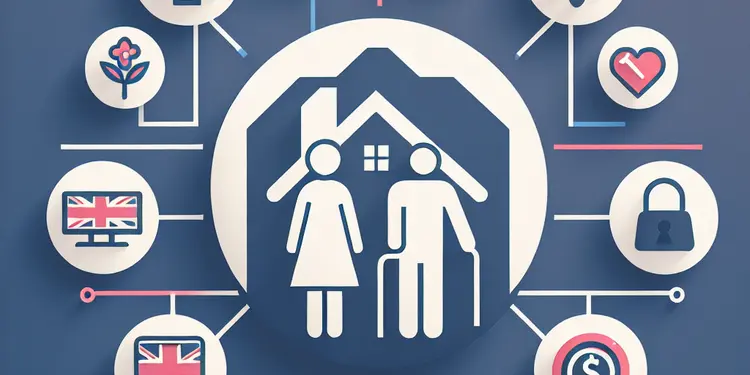
Can carers of Alzheimer's patients access in-home healthcare services?
Relevance: 34%
-
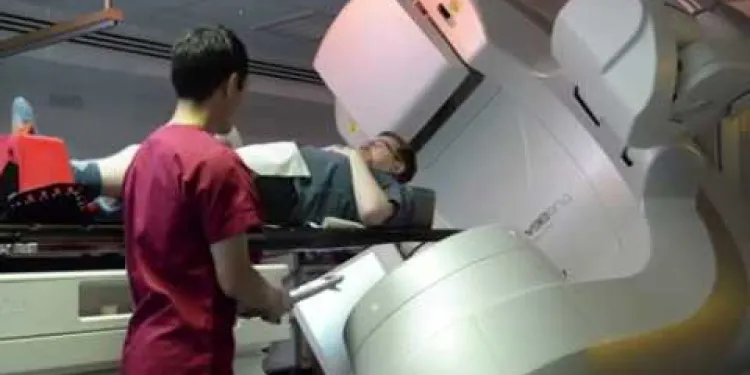
A Radiotherapy appointment in east and North Hertfordshire
Relevance: 34%
-
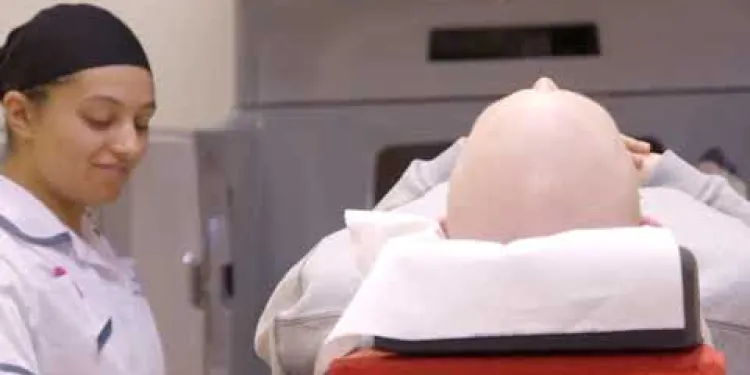
What is Radiotherapy, and its use in treatment for cancers?
Relevance: 34%
-
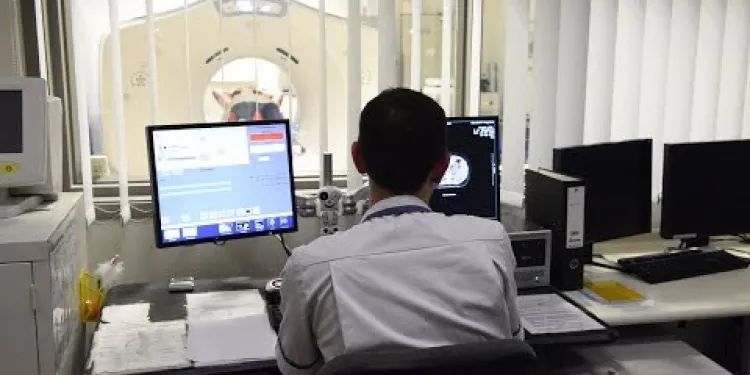
Having radiotherapy for breast cancer - 3 Videos
Relevance: 34%
-

How can support groups benefit carers of Alzheimer's patients?
Relevance: 33%
-
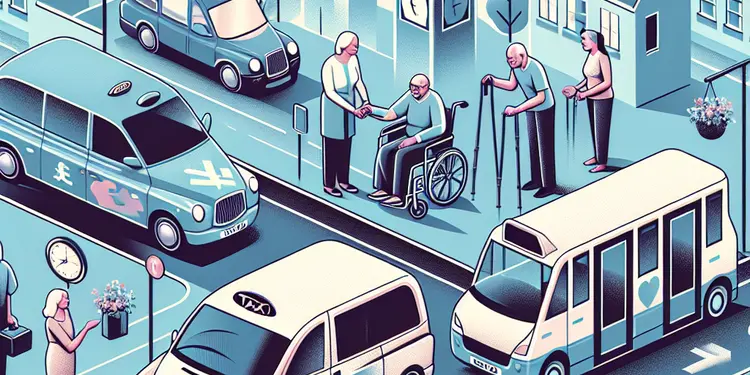
What transportation services are available for Alzheimer's patients and their carers?
Relevance: 33%
-
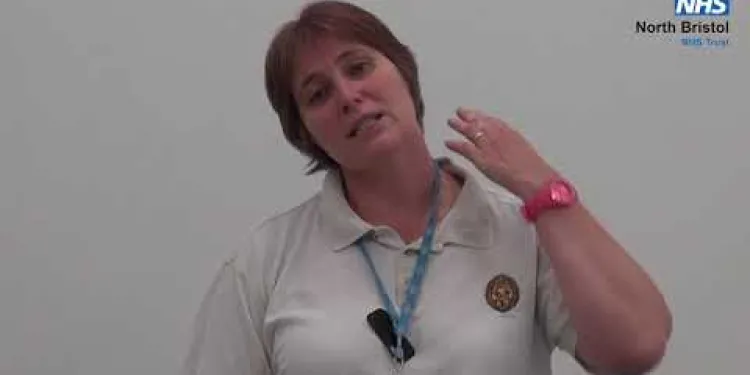
Neck Exercises
Relevance: 33%
-
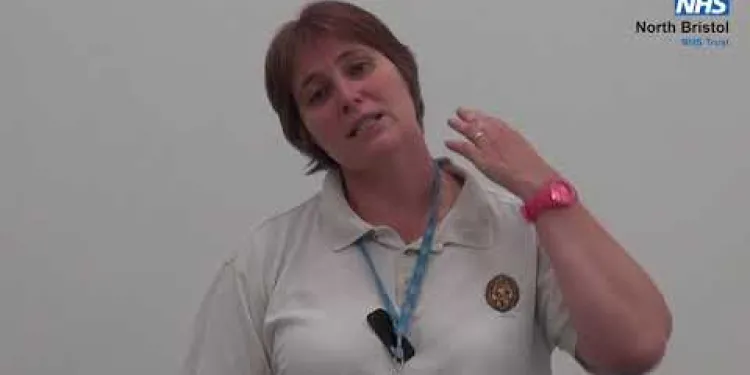
Neck Exercises
Relevance: 32%
-
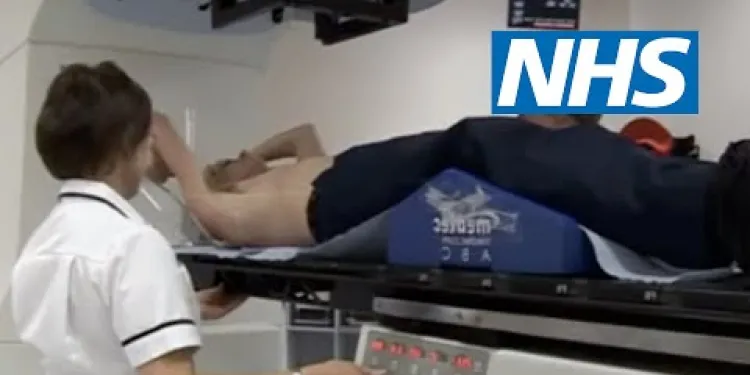
Cancer treatment: what happens during radiotherapy? | NHS
Relevance: 32%
-
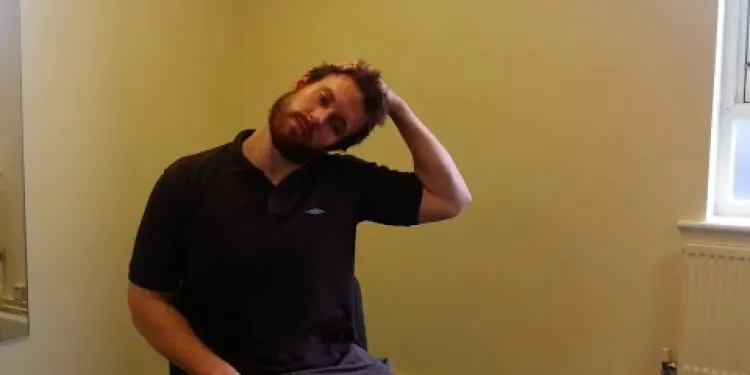
Neck Care Exercises
Relevance: 32%
-
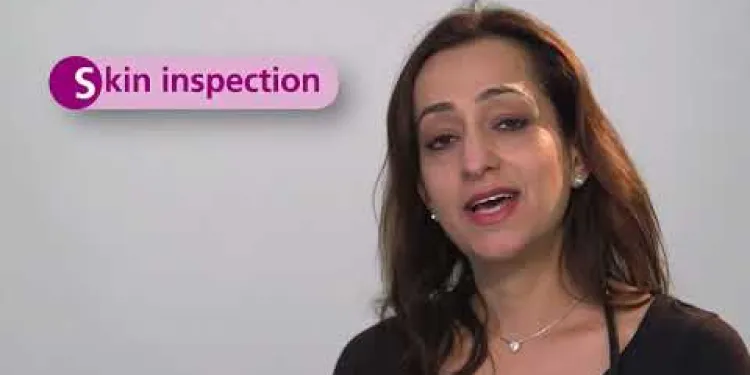
Pressure ulcer prevention: A guide for patients, carers and healthcare professionals
Relevance: 31%
-
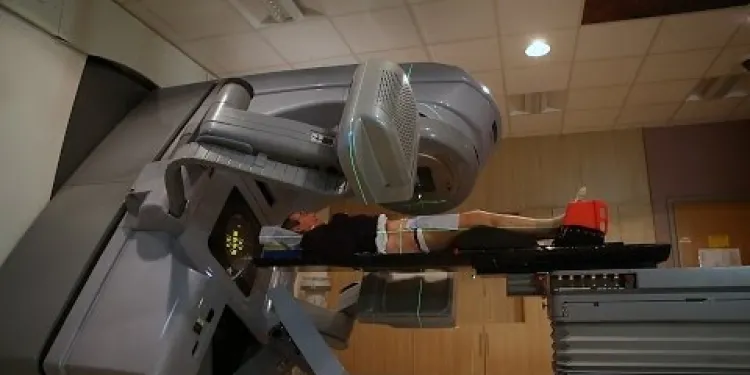
What is it like having Prostate Radiotherapy treatment?
Relevance: 31%
-
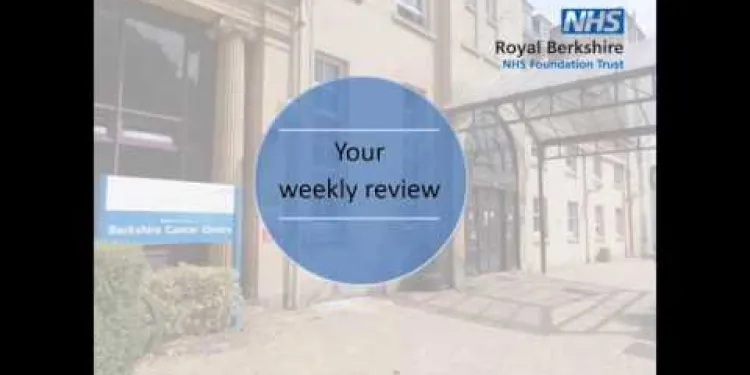
Royal Berkshire NHS Foundation Trust: Radiotherapy for prostate cancer
Relevance: 29%
-
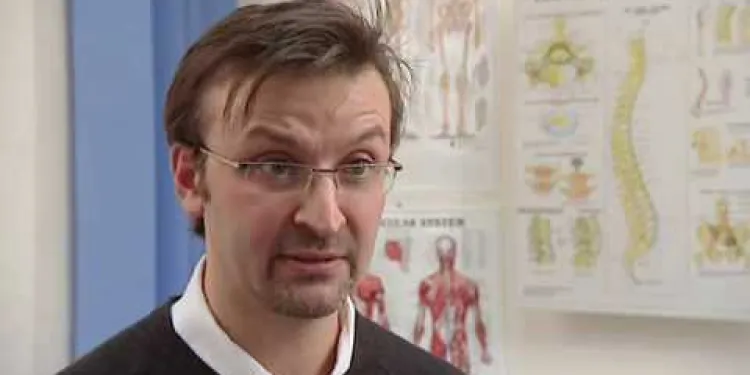
Advice on neck pain and whiplash
Relevance: 29%
-

What is the role of healthcare professionals in supporting carers?
Relevance: 26%
-

What are head lice?
Relevance: 26%
-

Where can I find information about Alzheimer's disease for carers?
Relevance: 25%
-

What role do carers play for those living with dementia?
Relevance: 25%
-

What training or educational programs are available for carers?
Relevance: 24%
-

Can concussions occur without a direct blow to the head?
Relevance: 23%
-

How can carers manage stress while caring for someone with Alzheimer's?
Relevance: 23%
-

How can carers access local resources and support services?
Relevance: 23%
-

How can carers plan for future stages of Alzheimer's disease?
Relevance: 23%
-

What online communities exist for carers of people with Alzheimer's?
Relevance: 23%
-

Positioning for Breathless Patient
Relevance: 22%
-

Are nits and head lice the same thing?
Relevance: 22%
-

Can baby sleep pillows prevent flat head syndrome?
Relevance: 21%
Radiotherapy to the Head and Neck: A Guide for Patients and Their Carers
Understanding Radiotherapy
Radiotherapy is a common treatment approach for cancers located in the head and neck regions. It uses high-energy radiation to target and destroy cancer cells. In the United Kingdom, radiotherapy can be an effective part of a comprehensive cancer treatment plan, often combined with surgery and chemotherapy.Preparing for Treatment
Before starting radiotherapy, you'll undergo a planning session called a simulation. This involves precise imaging scans such as CT or MRI to pinpoint the exact location and shape of the tumour. Customised masks may be created to keep your head and neck still during treatment, ensuring accuracy.During Treatment
Radiotherapy is usually administered over several weeks, with sessions typically held five days a week. Each session lasts about 10-15 minutes, focusing radiation beams on the tumour while sparing surrounding healthy tissues as much as possible. Treatment itself is painless; however, you will need to stay very still.Potential Side Effects
Common side effects of head and neck radiotherapy include:- Skin irritation: Redness, soreness, and peeling.
- Mouth and throat soreness: Difficulty swallowing and dry mouth.
- Fatigue: Feeling more tired than usual.
- Changes in taste: Foods may taste different.
Supporting Loved Ones
As a carer, your role is crucial. Offer emotional support, help with transportation to and from treatment sessions, and assist with daily activities if side effects become challenging. Communicate closely with healthcare providers to stay informed about treatment progress and management of side effects.After Treatment
Post-treatment, follow-up appointments will be scheduled to monitor your recovery and address any lingering side effects. Maintaining a nutritious diet, staying hydrated, and regularly visiting your dentist are critical for recovery. Support groups and counselling services are available to help cope with the emotional impact of cancer treatment.Contact Information
For more information, reach out to your local GP, oncology clinic, or specialised cancer support organisations such as Macmillan Cancer Support in the UK. They offer comprehensive resources and assistance for patients and carers navigating the radiotherapy journey.Radiotherapy to the Head and Neck: A Guide for Patients and Their Carers
Introduction to Radiotherapy
Radiotherapy uses high-energy radiation, often X-rays, to destroy cancer cells. When applied to the head and neck area, it targets cancers in regions such as the throat, mouth, and nasal passage. The treatment aims to control the spread of cancer, shrink tumors, and in some cases, cure the disease.
Preparing for Treatment
Before starting radiotherapy, patients typically undergo a planning session known as a simulation. This involves CT scans or MRI scans to precisely locate the cancer and tailor the treatment to target the affected area while minimizing damage to surrounding healthy tissue. A custom-made mask might be created to keep your head and neck still during treatment. Most treatments occur once daily, Monday to Friday, spanning over several weeks.
Managing Side Effects
Common side effects of head and neck radiotherapy include skin irritation, fatigue, difficulty swallowing, dry mouth, and changes in taste. It is vital to maintain good nutrition to support your body through these changes. Patients are encouraged to communicate regularly with their care team about any discomfort for better management and possible intervention.
Support for Patients and Carers
In the UK, various support services are available for patients undergoing radiotherapy, from counseling to nutritional guidance. Carers can also seek support groups to share experiences and tips. It's essential to stay informed and seek help when necessary; your healthcare team can direct you to local resources and online support networks.
After Treatment Care
After completing radiotherapy, follow-up appointments aim to monitor your recovery and detect any recurrence of cancer. Continuing to report new symptoms is crucial. Patients may also benefit from rehabilitation services like speech and swallowing therapy, depending on their unique post-treatment challenges.
Conclusion
Radiotherapy to the head and neck requires a comprehensive treatment plan tailored to individual needs. By understanding the process and engaging with available support services, both patients and caregivers in the UK can navigate the journey more effectively, improving quality of life and treatment outcomes.
Radiotherapy to the Head and Neck: A Guide for Patients and Their Carers
Understanding Radiotherapy
Radiotherapy is a treatment for cancer in the head and neck. It uses strong energy beams to kill cancer cells. In the UK, radiotherapy can help treat cancer. It might be used with surgery and another treatment called chemotherapy.Preparing for Treatment
Before you start radiotherapy, you will have a planning session. This is called a simulation. Doctors will take special pictures of your head and neck with machines like a CT or MRI. These pictures show where the tumour is. You might get a special mask to wear during treatment. This helps keep your head and neck still.During Treatment
You will have radiotherapy sessions over a few weeks. They usually happen five days a week. Each session lasts about 10-15 minutes. The machine will send energy beams to the tumour. You need to stay very still, but it does not hurt.Potential Side Effects
You might have some side effects, such as:- Skin irritation: Your skin might get red, sore, or peel.
- Mouth and throat soreness: It might be hard to swallow, and your mouth could feel dry.
- Fatigue: You might feel more tired than usual.
- Changes in taste: Food might taste different to you.
Supporting Loved Ones
If you are caring for someone, your help is important. Offer them support and help them get to their treatment sessions. Assist with daily tasks if they are having trouble. Talk with their healthcare team to know how they are doing and how to help with side effects.After Treatment
You will have check-up appointments after treatment. These help watch your recovery and manage any lasting side effects. Eating healthy food, drinking plenty of water, and visiting your dentist can help you recover. Support groups and talking to someone might also help you feel better.Contact Information
For more help, ask your local doctor, hospital cancer clinic, or groups like Macmillan Cancer Support in the UK. They have lots of information and help for patients and carers.Radiotherapy to the Head and Neck: A Guide for Patients and Their Carers
What is Radiotherapy?
Radiotherapy uses strong rays, like X-rays, to kill cancer cells. It is used for cancers in the head and neck, like in the throat or mouth. This treatment helps stop cancer from spreading, makes tumors smaller, and can sometimes cure cancer.
Getting Ready for Treatment
Before you start radiotherapy, you will have a planning visit. This visit is called a simulation. Doctors use special scans called CT or MRI to see where the cancer is. They make sure the treatment goes to the right place and does not harm healthy areas nearby. You might need a special mask to keep your head and neck still. Treatment usually happens once a day from Monday to Friday for a few weeks.
Dealing with Side Effects
Radiotherapy can cause some problems. Your skin might get sore, you might feel very tired, have trouble swallowing, a dry mouth, and food might taste different. It's important to eat well to help your body. Talk to your doctor or nurse if you feel uncomfortable. They can help you manage these problems.
Help for Patients and Carers
In the UK, there are many ways to get help, like talking to counselors or getting advice on what to eat. Carers can also find groups to share ideas and get tips. Always ask for help if you need it. Your doctors can tell you about where to get help in your area or online.
Care After Treatment
After radiotherapy, you will have check-ups to see how you are doing and to watch for cancer coming back. Keep telling your doctor about any new problems. You might also get help with talking or swallowing if you have trouble after treatment. This is called rehabilitation.
Conclusion
Having radiotherapy for head and neck cancer needs careful planning for each person. By learning about the treatment and using support services, patients and carers in the UK can make the experience better. This can help improve life and how well the treatment works.
Frequently Asked Questions
What is radiotherapy and how does it work for head and neck cancer?
Radiotherapy uses high-energy rays to destroy cancer cells while minimizing damage to surrounding healthy tissue. It is commonly used for treating head and neck cancers.
How long does a typical course of radiotherapy last for head and neck cancer?
A typical course of radiotherapy for head and neck cancer can last from 4 to 7 weeks, with treatments given daily from Monday to Friday.
Will I need to stay in hospital for my radiotherapy treatment?
Most patients receive radiotherapy as an outpatient and do not need to stay in the hospital overnight. Each session typically lasts 15 to 30 minutes.
How should I prepare for my radiotherapy sessions?
You may need a custom mask made to keep your head still during treatment. Your radiotherapy team will guide you on how to prepare, including any dietary adjustments needed before sessions.
What side effects should I expect from radiotherapy to the head and neck?
Common side effects include sore skin, dry mouth, difficulty swallowing, changes in taste, and fatigue. These usually develop gradually and can be managed with the help of your healthcare team.
Can I drive myself to radiotherapy sessions?
If you feel well, you can drive yourself to sessions. However, due to side effects like fatigue, some patients prefer arranging transport with a family member or friend.
Will I lose my hair from radiotherapy to the head and neck?
Hair loss may occur only in the area being treated. It is not common for patients to lose hair on their scalp unless that area is involved in the treatment.
Is radiotherapy painful?
The actual radiotherapy treatment is painless. However, side effects such as skin soreness or mouth ulcers might be uncomfortable, and your healthcare team can provide treatments to relieve these.
What dietary changes may be necessary during treatment?
You might need to adjust your diet to manage swallowing difficulties and maintain nutrition. Soft, bland foods are recommended, and staying hydrated is crucial. A dietitian can offer personalized advice.
How will radiotherapy affect my speaking and swallowing abilities?
Radiotherapy can impact speaking and swallowing, potentially causing temporary changes. Speech and language therapists are available to help manage these side effects.
Is it safe to continue taking my other medications during radiotherapy?
Always inform your healthcare team about any medications you are taking, including over-the-counter drugs and supplements, to ensure there are no interactions with your treatment.
Can I continue working during my radiotherapy treatment?
Some people continue to work during treatment, but it depends on the type of work and the side effects experienced. Discuss any work plans with your healthcare provider.
Will I need follow-up care after my radiotherapy is complete?
Yes, follow-up appointments are essential to monitor recovery and manage any ongoing side effects. Your healthcare team will arrange these visits.
Can radiotherapy be combined with other treatments for head and neck cancer?
Radiotherapy is often combined with surgery or chemotherapy to improve effectiveness. Your medical team will design the best treatment plan for your specific case.
What support is available for emotional and psychological needs during treatment?
Emotional support is vital, and many resources, including counseling and support groups, are available through your hospital or cancer support charities.
What is Radiotherapy and How Does It Help with Head and Neck Cancer?
Radiotherapy is a treatment that uses strong beams of light called radiation to kill cancer cells. It is used to help people who have cancer in the head or neck.
How does it work?
- The radiation goes to the cancer cells and damages them so they stop growing.
- Doctors use special machines to aim the radiation at the cancer.
If you find reading hard, you can:
- Ask someone to read the text out loud for you.
- Use an app or tool that turns text into speech.
- Take your time and read a little bit at a time.
Radiotherapy is a way to treat cancer. It uses strong rays to kill cancer cells. It tries not to hurt the healthy parts of your body. Doctors often use it to treat cancer in the head and neck.
How long does radiotherapy take for head and neck cancer?
Radiotherapy is a treatment. It uses strong rays to kill cancer cells.
If you have cancer in your head or neck, you might need radiotherapy.
Usually, this treatment lasts a few weeks.
Doctors often give treatment once a day, five days a week.
Your doctor will tell you how many weeks you need therapy.
If you have questions, ask your doctor or nurse. They can help you understand.
You can also get help from a loved one, a trusted friend, or a support group. They can go with you to appointments or help explain things.
When you get treatment for head and neck cancer, it usually takes 4 to 7 weeks. You go to the hospital from Monday to Friday every week to get your treatment.
Do I need to stay in the hospital for my radiotherapy?
Most people go to the hospital for radiotherapy and go home the same day. They do not have to sleep in the hospital. Each treatment takes 15 to 30 minutes.
How can I get ready for my radiotherapy sessions?
Radiotherapy is a treatment to help your body fight cancer. Here are some simple steps to get ready:
- Talk to your doctor: It is important to ask questions. Your doctor will tell you what to expect and how to prepare.
- Eat well: Try to eat healthy foods and drink lots of water. This can help your body stay strong.
- Rest: Make sure to get plenty of sleep. Your body needs rest to heal.
- Bring a friend: You can ask a friend or family member to come with you. They can help you feel better and give support.
- Use relaxation techniques: Try to relax by taking deep breaths or listening to calm music. This can help you feel less worried.
- Write things down: You can write down any questions or worries you have. Bring the list with you to your appointment.
Following these steps can help you feel more prepared and comfortable for your radiotherapy.
You might need a special mask to help keep your head still when you get your treatment. Your team of doctors and nurses will tell you how to get ready. They will let you know if you need to change what you eat before your treatment.
What happens to my body with head and neck radiotherapy?
Radiotherapy is a treatment for cancer. It can make your body feel different. This is called a side effect. When you have radiotherapy on your head and neck, you may have some side effects.
Things you might feel:
- Tiredness: You might feel very tired.
- Sore throat: Your throat might hurt.
- Dry mouth: You might feel like your mouth is dry.
- Skin changes: Your skin might look red or sore.
- Taste changes: Food might taste different.
Helpful tips:
- Rest when you need to. It's okay to take naps.
- Drink plenty of water to help with dry mouth.
- Eat soft foods if your throat is sore.
- Use gentle skin cream if your skin feels sore.
- Ask your doctor if you have questions or need help.
Remember, everyone is different. You might not have all these side effects. Your doctor can help you feel better.
Some things might happen after treatment. Your skin might hurt, your mouth could feel dry, and it might be hard to swallow. Food might taste different and you could feel tired. These things usually happen slowly. Your doctor or nurse can help you feel better.
Can I drive myself to radiotherapy sessions?
Driving yourself after radiotherapy might not always be a good idea. Some people feel very tired after their treatment. It can make it hard to drive safely.
Here’s what you can do:
- Ask someone to come with you and help drive.
- Use a taxi or a car service if you need to.
- If you feel okay, you might be able to drive. But it is always good to ask your doctor first.
Tell your doctor or nurse how you feel after your sessions.
If you feel good, you can drive your own car to your appointments. But some people get very tired from treatment. So, they might ask a family member or a friend to help them get there.
Will I lose my hair from treatment on my head and neck?
If you have treatment called radiotherapy on your head or neck, you might lose your hair there.
This means hair might fall out where you get the treatment.
Some people might find it helpful to wear a hat or a scarf. You can ask a nurse or a doctor to help you with this.
When you get treated, you might lose hair only where they treat you. You won't lose hair from your head unless they treat your head.
Does radiotherapy hurt?
The radiotherapy treatment itself does not hurt. But sometimes, it can cause sore skin or mouth sores, which might feel uncomfortable. Your healthcare team can help you feel better with special treatments.
What food changes might you need during treatment?
During treatment, you might need to eat different foods. This can help you feel better.
Here are some tips:
- Ask your doctor or nurse about what foods are best for you.
- Eat small meals many times a day instead of a few big meals.
- Try to eat more fruits and vegetables.
- Drink lots of water.
- Use a food diary to keep track of what you eat.
If you need help, ask someone to help you with shopping and cooking.
If you have trouble swallowing, you might need to change what you eat. Eating soft and plain foods can help. It's very important to drink enough water, too. A food expert, called a dietitian, can give you special help with this.
How will radiotherapy change how I talk and swallow?
Radiotherapy is a treatment that can help you get better if you are sick. It uses special rays to make the bad cells go away.
This treatment might make it hard to talk or swallow for some time. Everyone is different, so it might not be the same for you.
If you find it hard to talk, you can try to speak slowly. You can use a picture board or write things down to help you communicate.
If swallowing is tricky, try eating soft foods or drinking liquids. Take small bites and sips, and eat slowly.
It is always good to talk to a doctor or a nurse if you have questions. They know how to help you feel better.
Radiotherapy can make it hard to talk and swallow. This can change for a little while. There are special helpers called speech and language therapists who can help with this.
Can I keep taking my other medicines during radiotherapy?
Always tell your healthcare team about any medicine you take. This includes pills you buy from a store and vitamins. This helps make sure everything works well with your treatment.
Can I keep working during my radiotherapy treatment?
You might be able to keep working while you have radiotherapy. It depends on how you feel.
- Talk to your doctor about how you are feeling.
- Listen to your body. Rest when you need to.
- Tell your boss about your treatment. They might let you work less or change your hours.
Here are some things that can help:
- Use a calendar to keep track of appointments.
- Plan short breaks to relax during the day.
- Get help from friends and family if you need it.
Some people keep working when they have treatment. This depends on their job and how the treatment makes them feel. Talk to your doctor about your work plans.
Do I need to see the doctor again after my radiotherapy is finished?
Yes, going back to the doctor is really important. It helps to check how you are getting better. The doctor can also help with any problems you might still have. Your doctor will help you set up these visits.
Can you use radiotherapy with other treatments for head and neck cancer?
Yes, you can use radiotherapy with other treatments. Sometimes doctors use radiotherapy with surgery or medicine to help fight cancer.
If you want to know more, you can:
- Ask your doctor to explain it to you.
- Watch videos about cancer treatments.
- Use pictures or diagrams to understand better.
Doctors often use radiotherapy with surgery or chemotherapy to make it work better. Your doctors will make a special plan just for you.
What help can you get for feelings and mental health during treatment?
When you are getting medical help, you might feel worried, sad, or scared. It is important to take care of your feelings and mind.
Here are some ways to get support:
- Talk to a counselor or therapist: They can help you understand your feelings and feel better.
- Join a support group: You can meet other people who feel the same way and share your experiences.
- Talk to family and friends: They can listen and give you comfort and love.
- Practice relaxation techniques: Deep breathing or gentle exercise can help you feel calm.
Remember, it is okay to ask for help when you need it.
Feeling supported is very important. You can find help from talking to people. This help can be from counselors or support groups. These are offered by your hospital or charities that help people with cancer.
Useful Links
Have you found an error, or do you have a link or some information you would like to share? Please let us know using the form below.
-->
This website offers general information and is not a substitute for professional advice.
Always seek guidance from qualified professionals.
If you have any medical concerns or need urgent help, contact a healthcare professional or emergency services immediately.
Some of this content was generated with AI assistance. We’ve done our best to keep it accurate, helpful, and human-friendly.
- Ergsy carfully checks the information in the videos we provide here.
- Videos shown by Youtube after a video has completed, have NOT been reviewed by ERGSY.
- To view, click the arrow in centre of video.
- Most of the videos you find here will have subtitles and/or closed captions available.
- You may need to turn these on, and choose your preferred language.
- Go to the video you'd like to watch.
- If closed captions (CC) are available, settings will be visible on the bottom right of the video player.
- To turn on Captions, click settings .
- To turn off Captions, click settings again.
More Items From Ergsy search
-

Radiotherapy to the Head and Neck: A Guide for patients and their carers
Relevance: 100%
-

Royal Berkshire NHS Foundation Trust: Radiotherapy for head and neck cancers
Relevance: 68%
-

Head and Neck Cancer Diagnosis
Relevance: 54%
-

What support is available for carers of Alzheimer's patients?
Relevance: 38%
-

Are there financial support programs for carers of Alzheimer's patients?
Relevance: 38%
-

How important is self-care for carers of Alzheimer's patients?
Relevance: 38%
-

Radiotherapy CT scanner
Relevance: 37%
-

What government assistance is available for carers of Alzheimer's patients?
Relevance: 37%
-

What legal resources are available for carers of Alzheimer's patients?
Relevance: 36%
-

What types of support are available for carers of Alzheimer's patients?
Relevance: 36%
-

What emotional support is available for carers of Alzheimer's patients?
Relevance: 36%
-

Radiotherapy Services at University Hospital
Relevance: 35%
-

Are there specific apps or tools to help carers of Alzheimer's patients?
Relevance: 35%
-

Can carers of Alzheimer's patients access in-home healthcare services?
Relevance: 34%
-

A Radiotherapy appointment in east and North Hertfordshire
Relevance: 34%
-

What is Radiotherapy, and its use in treatment for cancers?
Relevance: 34%
-

Having radiotherapy for breast cancer - 3 Videos
Relevance: 34%
-

How can support groups benefit carers of Alzheimer's patients?
Relevance: 33%
-

What transportation services are available for Alzheimer's patients and their carers?
Relevance: 33%
-

Neck Exercises
Relevance: 33%
-

Neck Exercises
Relevance: 32%
-

Cancer treatment: what happens during radiotherapy? | NHS
Relevance: 32%
-

Neck Care Exercises
Relevance: 32%
-

Pressure ulcer prevention: A guide for patients, carers and healthcare professionals
Relevance: 31%
-

What is it like having Prostate Radiotherapy treatment?
Relevance: 31%
-

Royal Berkshire NHS Foundation Trust: Radiotherapy for prostate cancer
Relevance: 29%
-

Advice on neck pain and whiplash
Relevance: 29%
-

What is the role of healthcare professionals in supporting carers?
Relevance: 26%
-

What are head lice?
Relevance: 26%
-

Where can I find information about Alzheimer's disease for carers?
Relevance: 25%
-

What role do carers play for those living with dementia?
Relevance: 25%
-

What training or educational programs are available for carers?
Relevance: 24%
-

Can concussions occur without a direct blow to the head?
Relevance: 23%
-

How can carers manage stress while caring for someone with Alzheimer's?
Relevance: 23%
-

How can carers access local resources and support services?
Relevance: 23%
-

How can carers plan for future stages of Alzheimer's disease?
Relevance: 23%
-

What online communities exist for carers of people with Alzheimer's?
Relevance: 23%
-

Positioning for Breathless Patient
Relevance: 22%
-

Are nits and head lice the same thing?
Relevance: 22%
-

Can baby sleep pillows prevent flat head syndrome?
Relevance: 21%


